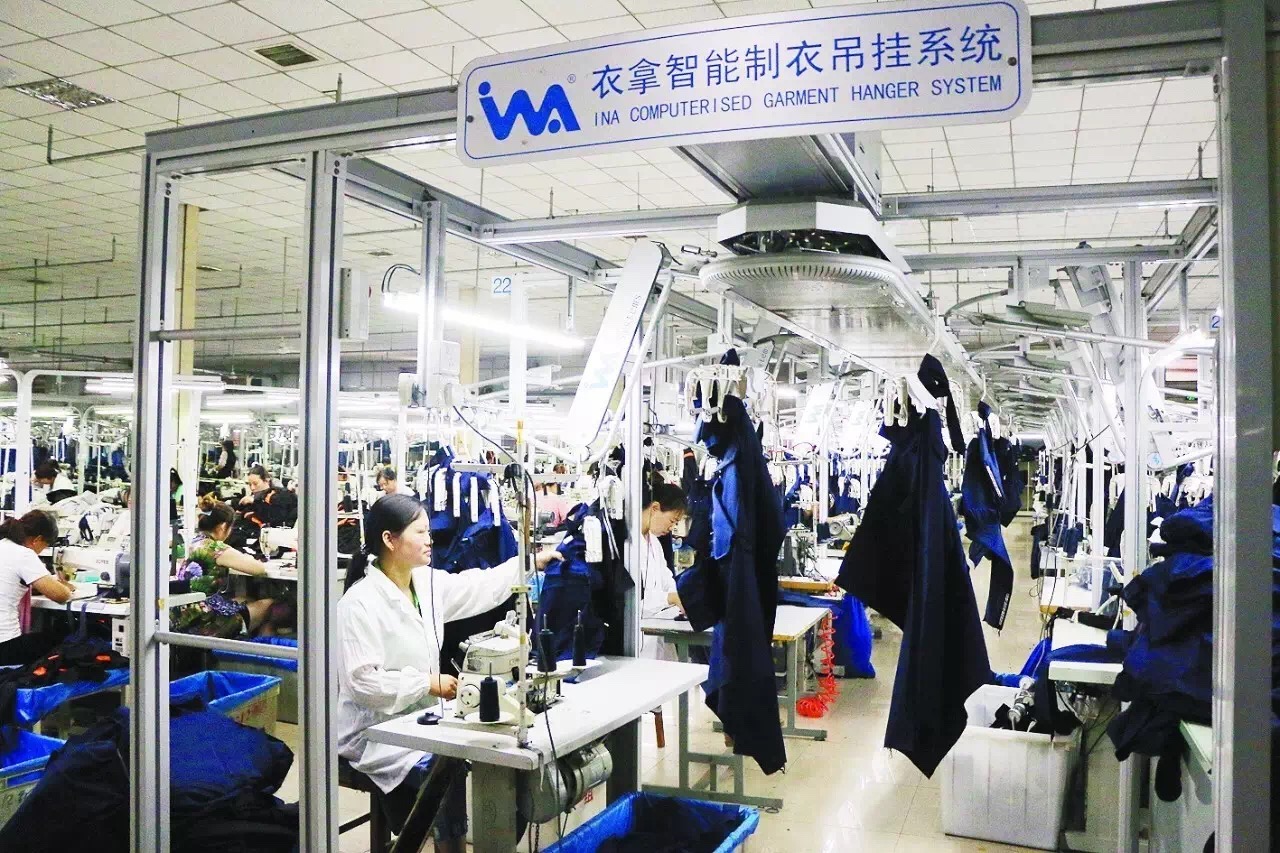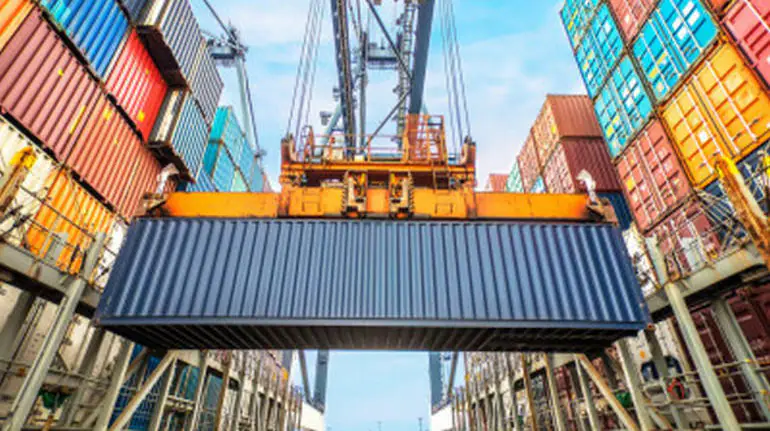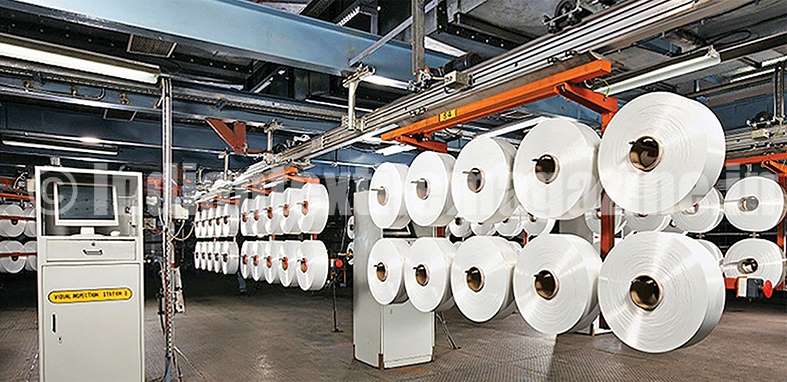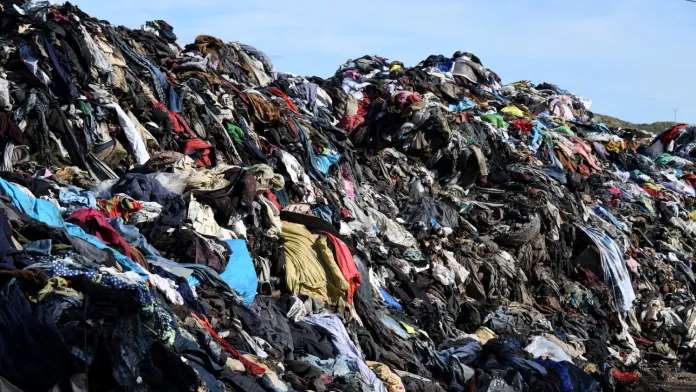FW
In early March, Istanbul will host two major textile industry events: the textile machinery trade show ITM 2024 and the yarns and fabrics show, Texhibition Istanbul featuring 1,200 and 400 exhibitors respectively.
An international showcase for textile machinery, yarns, knitting, dyeing, printing, garment finishing, and hosiery, ITM is organised by Tüyap Fairs & Exhibition and Teknik Faire. At its last edition in 2022, ITM drew 64,500 visitors and 1,280 exhibitors.
To be held from March 04-08 at the Tüyap Fair and Congress Centre, the 2024 edition will host 1,200 exhibitors from Turkey and abroad. Delegations from Pakistan, Bangladesh, Uzbekistan, India, and Egypt will also attend.
Texhibition Istanbul, a trade show focusing on fabrics, yarns, components, and accessories for the fashion industry, will be held at the Istanbul Expo Centre.
With a spotlight on Spring/Summer 2025 collections, the event will feature 400 Turkish manufacturers and suppliers. Backed by the Turkish Exporters’ Assembly and ITHIB, Texhibition aims to attract visitors from Europe, the Middle East, and the USA.
These events follow IFCO, the Istanbul Fashion Connection, which unfolded from February 07-10 at the Istanbul Expo Centre. The fifth edition of IFCO, organised by ITKIB, welcomed 30,000 visitors and 600 exhibitors.
Enjoying tax-free access to the European market, Turkey's textile and apparel industry encompasses around 45,000 producers, providing 2 million jobs. Exports constitute 60 per cent of the industry's revenue. In the previous year, Turkey ranked as the third-largest textiles and apparel supplier to the European Union and the 12th largest to the US.
With its strategic location bridging Europe and Asia, Istanbul serves as a hub for the global textile trade. The city's textile events not only showcase cutting-edge technology and trends but also foster crucial business connections and partnerships.
A global technology specialist, Epson and the Hong Kong Research Institute of Textile and Apparel Limited (HKRITA) have signed a joint development agreement to revolutionise textile recycling through innovative Dry Fiber Technology.
This collaboration targets the recycling of challenging textile products that have traditionally been difficult to process, thereby extending their lifespan and meeting the escalating global demand for recycled fibers.
This innovative solution promises to significantly expedite the adoption of recycled fibers by enabling the extraction of fibers from various challenging sources, including functional garments, linens, dress shirts, factory mill ends, unsold clothing pieces, and unwanted fabrics.
Epson is committed to implementing this technology expeditiously to drive positive change in textile recycling practices.
A proprietary development by Epson, the Dry Fiber Technology facilitates the creation of new value from post-consumer paper, wood, clothing, and other fibrous waste and used products.
In addition to offering recycled fiber production solutions, Epson endeavors to produce new paper and packaging materials from recycled paper and other raw materials. Furthermore, the company is actively engaged in developing stronger, more durable recycled plastics and bio-based plastics, underscoring its commitment to sustainability and environmental stewardship.
Through this collaboration and the innovative application of Dry Fiber Technology, Epson and HKRITA aim to pioneer a more sustainable and efficient approach to textile recycling, contributing to the global effort to reduce waste and promote a circular economy.
Parent company of Zara, Inditex is strategically expanding its low-cost brand, Lefties, in response to the growing competition from Shein, a Chinese-founded online marketplace. The emergence of Shein, known for its budget-friendly prices, has pressured retailers like Inditex and H&M to adapt to changing market dynamics.
Once known for its affordability, Zara has faced challenges in maintaining its competitive edge on pricing due to inflation and a shift towards a more upscale clientele. In response, Inditex is bolstering its budget-friendly offerings, with Lefties at the forefront of this strategy.
Originally conceived as an outlet for Zara's excess inventory, Lefties now operates in 17 countries, including emerging markets like Egypt, Mexico, and Saudi Arabia. Its growth underscores Inditex's commitment to catering to value-conscious consumers, even as it continues to strengthen its flagship Zara brand.
Lefties' expansion is particularly notable in Spain and Portugal, where it has seen significant customer growth, positioning itself as a viable alternative to Shein's ultra-low prices. In Spain alone, Lefties has experienced a surge in customers, trailing closely behind Shein in terms of market reach.
The brand's presence in emerging markets aligns with Inditex's strategy to capture diverse consumer segments, especially those inclined towards budget-friendly options. This approach reflects Inditex's acknowledgment of Shein's influence in the fast-fashion market and the need to stay competitive.
On social media platforms like Instagram and TikTok, Lefties adopts strategies similar to Shein, leveraging micro-influencers to promote its products and connect with younger demographics. This contrasts with Zara's more traditional high-fashion aesthetic in its marketing approach.
In January, India witnessed an 11 per cent surge in its RMG exports to $11.57 billion from $10.13 billion in December 2023, as per data from the Ministry of Commerce. This surge is attributed to shipments circumventing the Red Sea crisis by navigating the longer route around the Cape of Good Hope in Africa.
Exports to European nations, spearheaded by Germany, the Netherlands, Italy, Poland, and Denmark, grew by 19 per cent M-o-M to $4.30 billion in January.
However, from April 2023-January 2024 of the ongoing fiscal year, India’s textile exports dipped to $27.69 billion from $29.41 billion in the corresponding period of 2022-23.
Rahul Mehta, President of the Clothing Manufacturers Association of India (CMAI), foresees increased expenses and operational challenges not only for India but also for countries like Bangladesh and China.
Despite the growth in RMG exports, Mehta anticipates a subdued outlook for the sector, with no significant upswing in global trade sentiment. The Red Sea crisis is expected to persist, impacting shipping costs and timelines, he emphasises.
The world's sixth-largest textiles and apparel exporter, India’s T&A sector contributes 2.3 per cent to the nation's GDP, 13 per cent to industrial production, and 12 per cent to exports. Second only to agriculture in employment, the industry directly engages 45 million people and supports an additional 100 million in allied sectors.
As per the Indian Brand Equity Foundation (IBEF), the textile and apparel market is on a trajectory to expand from $172.3 billion in 2022 to $387.3 billion by 2028, reflecting a commendable CAGR of 14.59 per cent.
Foreseeing new export opportunities for the Sri Lankan apparel sector, Yohan Lawrence, Secretary General, Joint Apparel Association Forum Sri Lanka (JAAF), has hailed the proposed Economic Cooperation and Trade Agreement (ECTA) with India. He noted, the current Free Trade Agreement (FTA) only allows Sri Lanka to export 8 million pieces of ready-made apparel to India without duties.
Emphasising on the growing demand for ‘Made in Sri Lanka’apparel from the middle class, Lawerence said the agreement would prove to be an opportunity for Sri Lanka to boost forex earnings by increasing apparel exports.
He spoke at the launch of the Textile/Garment Machinery, Dyes & Chemicals, Yarn & Fabric, Power & Energy, and Shipping & Logistics exhibitions, organised by `CEMS Lanka',
Scheduled to take place from February 29 to March 2 at the SLECC hall in Colombo Fort, the event is being held by CEMS in collaboration with JAAF, the Sri Lanka Apparel Exporters Association, the Industrial Development Board, the Ministry of Power & Energy, and the Sri Lanka Ports Authority.
Dr. Kingsley Bernard, Chairman/CEO, Sri Lanka Export Development Board (EDB), acknowledged that global geopolitics and other factors had hampered Sri Lanka's apparel exports in the previous year. However, he expressed optimism about the industry's rebound in the near future.
SS Sarwar, Group CEO, CEMS-Global USA, reflected on CEMS's initiatives in Sri Lanka, commencing after the cessation of LTTE hostilities. CEMS-Global, through its Sri Lankan office, has been organising impactful B2B Trade Shows for the Textile & Apparel Industry, Logistics & Shipping, and Power & Energy sectors. Sarwar highlighted the significance of their Textile Series of Exhibitions across Bangladesh, Brazil, Morocco, Sri Lanka, and Thailand, serving as crucial platforms for global textile and apparel manufacturers to access potential markets and showcase their latest products and technologies.
In a swiftly evolving e-commerce landscape, Accessorize London and Unicommerce have joined forces to revolutionise online retail in India.
Transcending mere operational scaling, this collaboration aims to automate and optimise the e-commerce supply chain, ensuring that every customer of Accessorise London enjoys a post-purchase journey as delightful as the shopping process itself.
With Unicommerce's expertise in e-commerce enablement complementing Accessorize London's diverse product range, this partnership aims to automate order processing and warehouse operations, setting a new standard for swift deliveries.
Renowned for its women's fashion accessories, Accessorize London has expanded its offerings to include kids' products, sunglasses, and scarves. Through the integration of Unicommerce's advanced multi-channel order and warehouse management system, the brand anticipates streamlined operations and a reduction in return orders through enhanced returns management.
Processing over 20,000 orders monthly through Unicommerce, Accessorize London is poised to establish a significant presence in the Indian market, catering to its discerning clientele. Embracing Unicommerce's omnichannel retail management system facilitates seamless order processing across all touchpoints.
Beyond being a service provider, Unicommerce boasts a robust Annual Recurring Revenue (ARR) and manages orders from over 1,900 stores, signaling its intention to go public with an IPO. This collaboration with Accessorize London exemplifies Unicommerce's global expansion and its commitment to enhancing the efficiency and reach of its partner brands.
India is poised for a significant leap forward in the global apparel export arena, driven by a strategic embrace of spandex-infused knit fabrics. Spearheading this transformation is Inviya Spandex, leading the charge in innovation and sustainability within India's textile industry. This article explores the pivotal role of spandex in India's export strategy, emphasizing its impact on product diversity, aesthetics, and environmental responsibility.
Spandex, renowned for its elasticity and strength, revolutionizes knitwear by offering unparalleled comfort and flexibility. Inviya spandex empowers Indian mills to craft high-quality garments that cater to the evolving demands of global consumers. In today's fashion landscape, where both style and functionality reign supreme, spandex emerges as a fundamental component, ensuring garments meet the highest standards of wearability and appeal.
The versatility of spandex spans across a multitude of apparel segments, enabling Indian exporters to tap into lucrative global markets. From form-fitting leggings to resilient activewear, spandex-infused fabrics enhance both the form and function of garments, meeting diverse consumer preferences with precision. Notably, black spandex from Inviya elevates garment aesthetics while promoting durability, offering Indian exporters a competitive edge in premium knitwear markets.
Inviya's ECOModa100 represents a leap forward in sustainability, offering a 100 per cent recycled spandex solution crafted from pre-consumer waste. By reducing reliance on virgin resources and minimizing carbon footprint, ECOModa100 aligns with the growing demand for eco-conscious textiles. Its integration into knit fabrics presents a compelling proposition for environmentally aware consumers, positioning Indian exporters at the forefront of sustainable fashion.
The seamless integration of spandex into knit fabrics necessitates a collaborative approach across India's textile value chain. Through investments in research, infrastructure, and product development, India's textile ecosystem is primed for accelerated growth on the global stage. Inviya's partnership with India's textile industry underscores a commitment to innovation and sustainability, driving India's textile exports to new heights of excellence.
In conclusion, the integration of spandex, particularly Inviya spandex, underscores India's emergence as a global apparel powerhouse. With a focus on quality, aesthetics, and sustainability, India's textile industry is poised to capture international acclaim, solidifying its position as a leader in the global fashion landscape.
In December 2023, Turkey’s exports of nonwoven fabrics decreased by 84.1 per cent to approximately 3.8000 tons. This abrupt decline reflects a challenging period for exports.
According to the estimates by IndexBox, the value of nonwoven fabric exports from Turkey fell sharply to an estimated $12 million in December 2023. Overall, exports continue to show a considerable contraction, with the most rapid growth also observed in March 2023, at a 47 per cent increase month-to-month.
Egypt with imports of 271 tons, the United States with 262 tons of imports, and Germany with 219 tons emerged as the primary destinations for Turkey's nonwoven fabric exports, comprising a combined 20 per cent share of total exports.
From December 2022 to December 2023, Egypt experienced the most notable growth rate among the main destinations, with a Compound Annual Growth Rate (CAGR) of -11.1 per cent, while other leading destinations witnessed declines.
In terms of value, the United States with exports worth $773,000, Egypt with exports of $726,000, and Germany with exports worth $660,000 emerged as the largest markets for Turkish nonwoven fabric exports worldwide, accounting for a combined 19 per cent share of total exports. Germany showed the highest growth rate in export value, with a CAGR of -11.7 per cent, while other leading markets saw declines over the review period.
Renowned for its denim brand, Wrangler has entered into an innovative collaboration with MNTGE, a vintage clothing brand that integrates blockchain technology into garments.
Together, the two brands have curated a collection featuring vintage western shirts, denim jackets, and co-branded NFC-chipped patches.
Founded by Nick Adler, Sean Wotherspoon, and Brennan Russo, MNTGE, specialises in integrating blockchain into garments. The brand has previously collaborated with Levi’s on NFC-chipped jeans and has its own line of digital and NFC-chipped physical patches. For this exclusive collaboration with Wrangler, MNTGE curated vintage western shirts and denim jackets dating from the ’70s through the ’90s.
The collaboration delves into Wrangler’s archives, drawing inspiration from the brand's logos, branding, and past collections such as ‘Mr Wrangler’ and the psychedelic Peter Max collaboration from the 1960s. The patches feature artwork inspired by archival design elements from Wrangler's vault, paying homage to the Blue Bell Overall Company, which acquired the brand in the 1940s.
Through NFC-chipped garments and patches, MNTGE offers counterfeit-proof authentication, digitally "signing and saving" product information permanently on a digital record. This technology not only provides valuable information about the garment's history but also introduces possibilities for "digital wearables" in everyday life.
The Wrangler + MNTGE collection will debut at the Future Fashion Summit in Paris alongside archival vintage Wrangler pieces.
Affirming its projections, the Cotton Association of India (CAI) in January 2024, maintains India's cotton output cotton output at 294.10 lakh bales of 170 kg and domestic consumption at 311 lakh bales for the 2023-24 cotton season.
This signals a potential decline in India's cotton production from the 318.90 lakh bales recorded in the previous 2022-23 season.
CAI states, India's total cotton supply in 2023-24 would amount to 345 lakh bales, comprising 28.90 lakh bales of opening stock and 22 lakh bales of imports. This represents an increase in opening stock and imports compared to the previous season. Total cotton availability may decrease to 345 lakh bales in the current season from 355.40 lakh bales in the previous season.
The organisation upholds domestic demand at 311 lakh bales. This mirrors the previous season's projection, with mill consumption, Small Scale Industries (SSI) consumption, and non-mill consumption estimated at 280 lakh bales, 15 lakh bales, and 16 lakh bales, respectively, as forecasted in December 2024.
In January 2024, the available surplus of cotton remained steady at 34 lakh bales, aligning with the December 2023 estimate but marking a decrease from the previous season's surplus of 44.40 lakh bales. India's cotton export is anticipated to decline to 14 lakh bales from 15.50 lakh bales. Additionally, the projected closing stock at the end of the current season in September 2024 is 20 lakh bales, down from 28.90 lakh bales in the previous year.
CAI also maintains the cotton output projection for the north region at 42 lakh bales, distributed as follows: Punjab 4.50 lakh bales, Haryana 15 lakh bales, upper Rajasthan 11 lakh bales, and lower Rajasthan 11.50 lakh bales. In the central region, the output is forecasted at 179.60 lakh bales, with Gujarat at 85 lakh bales, Maharashtra at 76.70 lakh bales, and Madhya Pradesh at 18 lakh bales. Meanwhile, the southern region is expected to produce 67.50 lakh bales, with Telangana at 30 lakh bales, Andhra Pradesh at 12.50 lakh bales, Karnataka at 18.50 lakh bales, and Tamil Nadu at 6.50 lakh bales.
Most of the cotton-producing states in the country are estimated to experience lower production levels.












